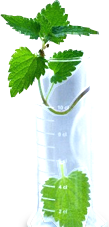



Author(s): Dilip Jani *, Jasmine Gujarathi
Shunthi i.e. Zingiber officinale R. is one of the popular herbs used since many centuries for various ailments as mentioned in Ayurveda literature. The herb is considered under the category of Rasayana (Rejuvenative) for having a broad spectrum activity. It is famous for most of the inflammatory conditions and associated diseases. The herb has unique quality to exert this activity under various pathogenesis. There are many pharmacological screening conducted so far to establish its effect on various animal / screening models. But yet, its Ayurvedic view in correlation with pharmacological screening with special reference to menstrual pain is not systematically presented. It is observed that understanding the mode of action of the herb in terms of Ayurvedic parameters is solely for Ayurvedic diseases and not for its understanding according to contemporary medical science. The theory of herb`s active components or extracts studied in in-vivo or in-vitro methods may be supportive to the actions describe in traditional texts. However, the understanding by both streams (Ayurveda and contemporary medicine) can help to appreciate other herbs with similar properties. It may give new vision to develop an interdisciplinary common protocol for other medicinal plants.